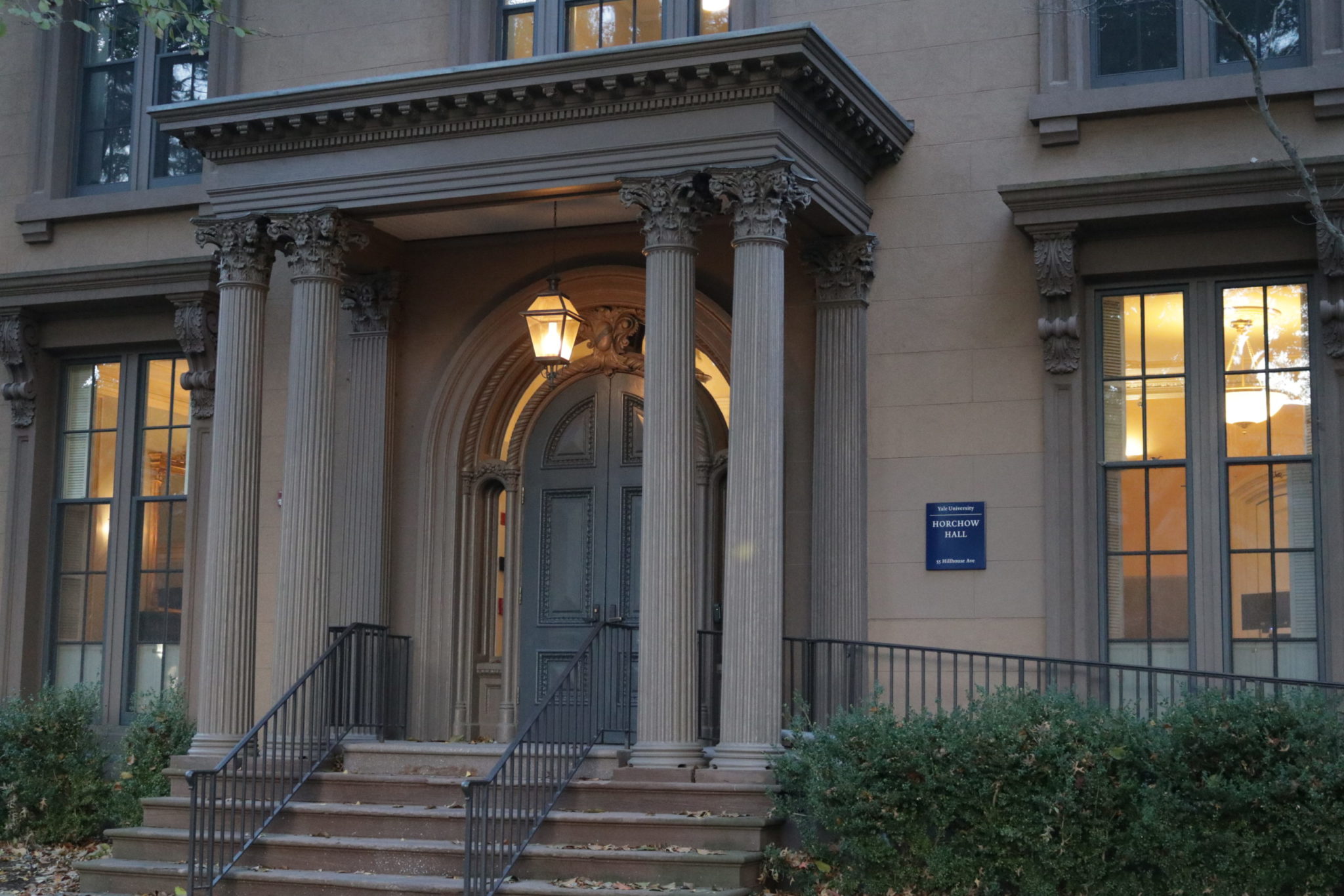Jackson Institute begins hiring process, updates programming in preparation for professional school designation
The Jackson Institute continues its transformation into a professional school while bringing change to its current degree program.

Yale Daily News
Less than a year before its slated opening as Yale’s newest professional school, the Jackson Institute for Global Affairs is starting up the hiring process for new faculty members and updating academic programming. With an effective hiring strategy, the process could be faster than usual.
The Jackson Institute, which is currently part of the Graduate School of Arts and Sciences, began its transformation into the Jackson School of Global Affairs in 2019. According to Director James Levinsohn, as of now, the school is expected to open in fall 2022, becoming Yale’s first new professional school since the School of Management opened in 1976.
“Jackson has been working to set the stage for the opening of the Yale Jackson School of Global Affairs,” Levinsohn wrote in an email to the News. “It’s all been fun, although the back office stuff is maybe a little less so, even though that too is important work.”
At the moment, the Jackson Institute is working with other professional schools, as well as the Faculty of Arts and Sciences, to hire faculty that will teach at the Jackson School as well as at other Yale schools. Professors at Jackson will be jointly tenured with the school and another Yale school or department.
This faculty-hiring process has already started.
“We’ve been working with Yale’s other professional schools and the FAS to jointly hire some of the world’s best faculty,” Levinsohn said. He described it as, “An effort that has been tremendously successful but is just getting started.”
The Jackson Institute also recently switched the degree it grants students from a Master’s of Arts to a Master’s of Public Policy. The change in degree means certain curricula changes; students will have four core courses, which will allow them more flexibility in the rest of their classes.
According to Jackson Institute Deputy Director of Academic Affairs Ken Scheve, the benefit of such a program is that while the core curriculum teaches theoretical, analytical and communication skills, students can also tailor the rest of their classes to fit their future career goals.
“We adopted a Master’s in Public Policy degree name in order to communicate more clearly to our students and their prospective employers that our program was designed in order to provide a foundation for students to become professionals, have a lifelong career working in global affairs,” he said in a video explaining the choice.
The class currently being recruited to the Jackson Institute will, if things go as planned, be the first to graduate with MPPs rather than MAs.
Other developments currently in the works include the creation of a new coat of arms — similar to those of all Yale schools and residential colleges — which will be designed for the Jackson School by the Office of the University Printer. Jackson is also acquiring two buildings on Hillhouse, T.M. Evans Hall and Steinbach Hall, which are currently being used to house departments whose regular spaces are being renovated in Kline Biology Tower. However, the Jackson School will not be able to use these buildings until after Jackson’s opening.
According to Levinsohn, the administration has been raising funds for the project, which he reported “is going well, thanks to the generosity of so many Yale alums.” He also mentioned that the Jackson administration is carrying out “back office” tasks to prepare for the opening of the school, such as creating the administrative infrastructure necessary for a standalone school.
Earlier this year, Jackson also welcomed new senior fellows, including Obiageli Katryn Ezekwesil, the former Nigerian minister of education and former vice president of the World Bank in Africa, and Anne Patterson, the former United States ambassador to Egypt and Pakistan.
“I was honored to be invited as a 2021 Senior Jackson Fellow and having known of the exceptional quality of leaders and people in the Jackson Institute, my only response was, a resounding ‘Yes!’ despite the huge opportunity cost of such relocation entails for my sprawling schedule,” Ezekwesili wrote in an email to the News.
She described her time at Yale as “fulfilling,” saying that she has learned from her students and built new friendships and networks throughout the wider Yale community.
Patterson, who previously served as a fellow in 2017, is currently teaching a course on U.S. policy surrounding Afghanistan. Levinsohn had asked her in August to lead the course due to her expertise in the area. The course chronologically follows 20 years of U.S. involvement in Afghanistan starting after 9/11. It includes perspectives from those who were part of the process on both sides, including high-level employees of the U.S. government and Afghans.
“I hope that the students, many of whom are headed into the government … hopefully they’ll learn about the policy-making process and, when they’re involved in it, won’t make similar mistakes,” Patterson said.
The Jackson School will be Yale’s 13th professional school.







